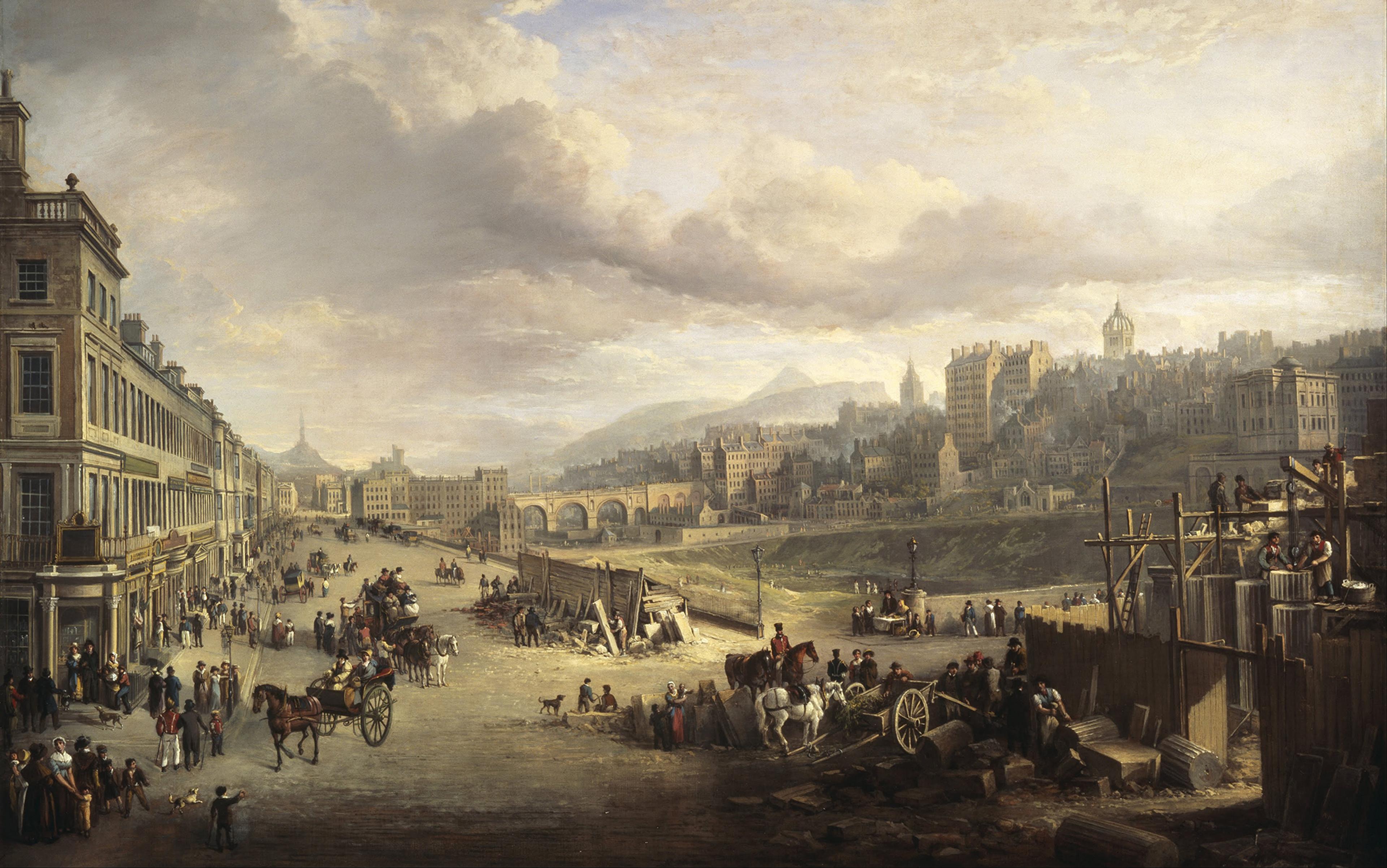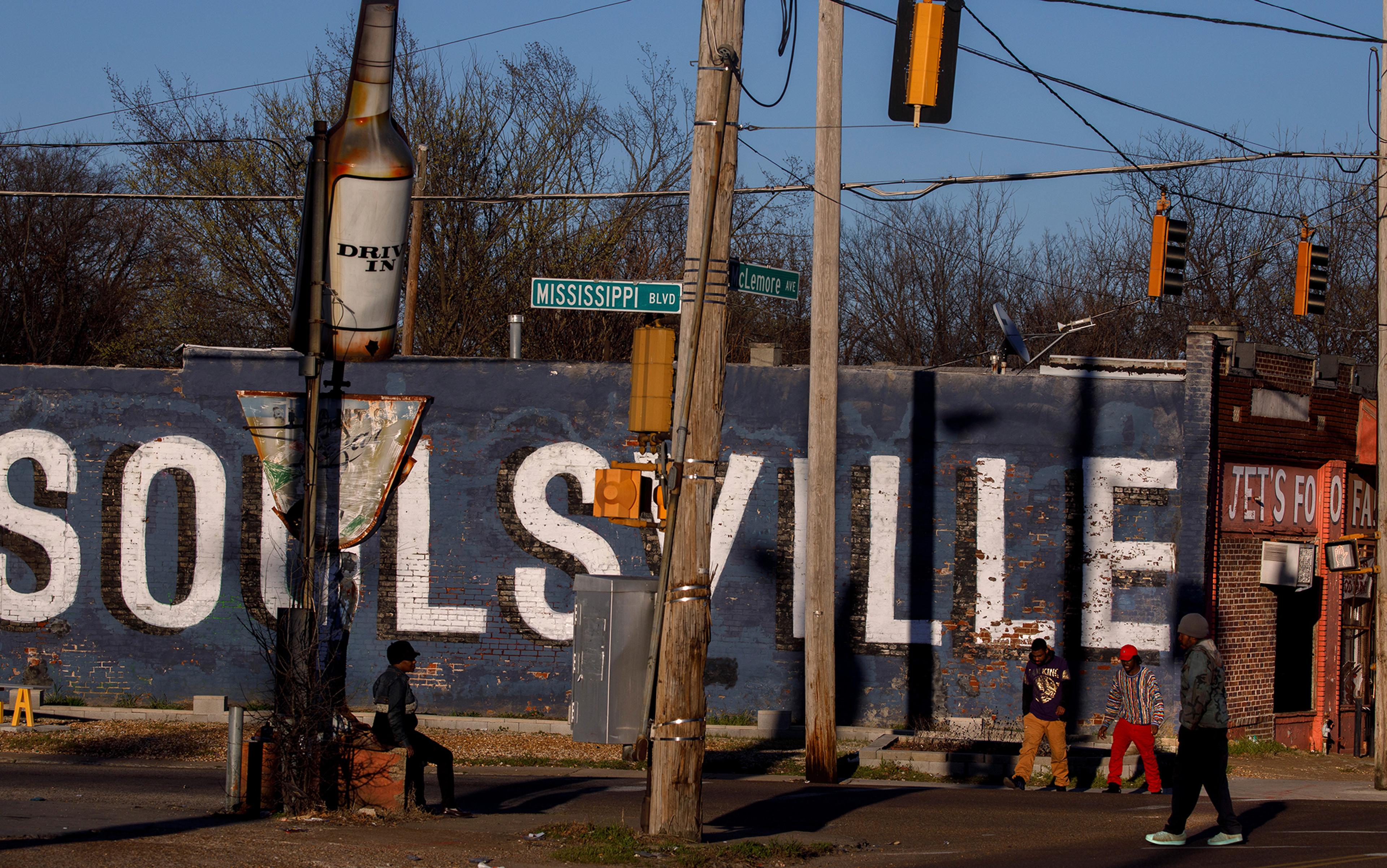In the aftermath of the Second World War, the administrations of presidents Franklin D Roosevelt and then Harry S Truman in the United States led in the construction of the liberal order – a set of international institutions agreed upon by nation-states. The goal was to sustain peace and prosperity in the decades after the devastation of the war, and in doing so prevent both communism and fascism from spreading. But over the last 30 years of the 20th century, the liberal order changed. It is no longer primarily about protecting the West from communism and fascism by pushing up wages, creating large social programmes, and building strong safety nets. Instead, it has become an engine for globalisation, economically integrating the whole world into a singular system. The liberal order has transformed from a means of defending liberalism into a means of exporting it everywhere.
The contemporary liberal order does this by making two things mobile: capital and labour. Capital mobility enables assets and businesses to move to different locations where different sets of economic rules exist. When capital is mobile, capital controls don’t prevent individuals and firms from moving their assets out of a particular economy, and trade barriers enable businesses to operate offshore without facing imposing tariffs. Labour mobility is about moving workers from place to place, in pursuit of the jobs that are relocated through capital mobility.
The liberal order enables rapid flows of investment and people from place to place. These flows facilitate economic growth and reduce the cost of consumer goods, but they also produce instability. Moving too much money too quickly into any particular part of the world generates bubbles. Taking too much money out too quickly produces credit crunches. Adding too many people to a region too quickly strains its public services and potentially pushes down wages. Taking too many people out of a region too quickly produces brain drain, starving the region of the skills it needs to thrive. The order keeps capital and labour mobile, and maintains the flows. But it doesn’t govern them, and that means the flows can get out of hand and cause trouble.
The liberal order exists on three levels: the global, the regional and the national. At the global level, the order consists of large international organisations that mainly focus on the regulation of trade, borrowing and investment, such as the International Monetary Fund (IMF) and the World Bank. At the regional level, the liberal order creates tighter trade relationships, through agreements such as the North American Free Trade Agreement (NAFTA) – now the United States-Mexico-Canada Agreement (USMCA) – and block organisations such as the European Union (EU). In the case of the EU, the regional institutions also provide free movement of people, a currency union, and a common set of fiscal rules and regulations. At the national level, the liberal order is embodied by the political parties that are committed to defending and maintaining it, including most of the traditional centre-Right, centrist and centre-Left parties.
To put it another way, the liberal order consists of a lot of economic integration, but this economic integration still depends on the continued commitment and participation of nation-states. The institutions that exist at the global and regional level don’t have direct connections to voters. They rely on the ability of the national parties that support the order to remain politically competitive on their home turfs. As the liberal parties weaken, the order weakens.
In the 12 years since the global economic crisis of 2008, the liberal order has been besieged from all sides. On the Left, traditional social democratic parties have been weakened, displaced or captured by radical insurgents. Bernie Sanders disturbed the Democratic Party’s equilibrium in the US. Jeremy Corbyn did the same for the Labour Party in the UK. In France, the Socialist Party has been displaced by the more radical La France Insoumise. Greece’s traditional centre-Left party, PASOK, was overtaken by the more radical SYRIZA.
On the Right, Donald Trump staged a hostile takeover of the Republican Party in the US. In the UK, the Conservative Party took the country out of the EU. The Republicans in France have been challenged by Marine Le Pen’s National Rally (previously the National Front). And in Germany, the Right-wing Alternative für Deutschland is now the largest opposition party. In Italy, the centre-Left Democratic Party and the Five Star Movement joined together to form a Right-wing coalition government. All of these parties and movements are interested in revising, exiting or performatively ignoring the liberal order. Russia cheerleads the order’s decay, while China has begun constructing alternative institutions of its very own. Vultures circle.
This is not to say that the order is defenceless. Global and regional institutions do have the ability to inflict economic hardship on voting populations. The EU, IMF and World Bank can deny states access to needed funds, threatening them with economic crisis if they fail to toe the line. Governments know they won’t survive the next election if these organisations visit financial chaos upon them. In 2015, for instance, Greece attempted to resist the EU’s austerity demands, threatening to leave the eurozone’s monetary union if the EU refused to offer more financial support. But leaving the euro would badly damage Greece’s economy in the near-term, and Brussels knew it. The EU called Greece’s bluff, and Greece retreated. Last summer, SYRIZA was trounced by New Democracy, Greece’s traditional centre-Right party.
This creates a difficult situation for political parties. The liberal order has brought about economic integration, and that integration has often been politically disadvantageous. In the post-2008 era, global and regional institutions have pushed many states to cut public spending, eliminating social programmes and weakening public services and infrastructure. In many countries, living standards for the ordinary voter have stagnated or even backslid. Capital mobility makes it easy for billionaires and corporations to rapidly move their assets all over the world, and that means they have a lot of leverage over national governments. If a government raises taxes to support public services, the people and firms it attempts to tax might simply move away, depriving the country of both the tax revenue and the jobs and investment that those people and firms once supplied. The ensuing recession could swiftly cost that government the next election. To attract investment, governments are forced to compete with one another for the favour of oligarchs and transnational corporations. That means keeping taxes and wages low, and regulations and labour laws weak.
Some political parties talk about trying to trap investment before it can escape, with capital controls and trade barriers. A few talk about funding social spending with monetary sorcery, using quantitative easing to support flagging social programmes and fabulous new infrastructure. But even the prospect of a party of this type winning power is enough to encourage corporations to take their custom elsewhere. Throwing up trade barriers quickly breaks supply chains, without giving the economy an opportunity to gradually reorganise the affected sectors. The shock of a sudden severance would be severe, sending the cost of goods and services soaring until new arrangements can be made. During that time, inflation would be elevated even without radical monetary policy. Adding it on would just make things worse.
Governments aren’t willing to take the risk of capital flight. The anticipated economic consequences are too severe, and economic consequences mean electoral consequences. How, then, do they placate their voters? The voters remember a time, not so long ago, when public services were strong and their lives were getting better. While they wish for the economic malaise to end, for things to return to the way they once were, their governments cannot deliver it. If states can’t make voters happy, they have to find a way to direct voter resentment elsewhere.
Voters want the antiestablishment rhetoric, but don’t want the antiestablishment policy
So instead of directly challenging the liberal order, national governments point the finger at the order, while largely continuing to align with it economically. Trump is very good at this bait and switch. He abandoned Barack Obama’s Trans-Pacific Partnership (TPP) in favour of tariffs, but the purpose of the tariffs is to achieve with a stick what Obama sought to get with a carrot – the moving of firms and investment out of China and into the economies of the Pacific allies of the US. Trump frames the tariffs as an attempt to challenge the liberal order and force jobs to return to the US, but the tariffs don’t actually achieve this – instead, they push businesses to move to neighbouring states, such as Vietnam. This is their true purpose: redirecting investment away from China toward US allies. It is the same purpose that animated TPP but, while TPP appears to further grow the liberal order, the tariffs appear to defy it.
Trump gets away with continuing to support the liberal order by opposing it in public while continuing to maintain the economic relationships that are its foundation. Trump didn’t simply suspend trade with China, because his purpose is not to end US dependence on cheap foreign imports. Instead, he wishes to perform strength for the home audience. By vilifying China and gradually discouraging US firms from doing business there, Trump can appear to stand up to the liberal order while simply exchanging one set of East Asian trading partners for another. In this way, he gets the political credit for appearing hostile to the order, without taking action that would substantially raise the cost of goods and services in the near-term.
Trump performed a similar dance with NAFTA. Initially, he declared his intention to leave the agreement, only to proceed to ‘renegotiate’ it. The renegotiated trade agreement, USMCA, is broadly similar to NAFTA but, because it contains minor cosmetic concessions to the US trade position, Trump appears to have meaningfully challenged the liberal order without really doing anything at all. The Mexican government becomes a convenient bogeyman, but trade relations with it go on much as before.
Voters want the catharsis of antiestablishment rhetoric, but they don’t want to pay the price for antiestablishment policy. Trump – who has always been a good showman – is happy to oblige. He walks a tightrope, appearing to fight the liberal order without actually fighting it.
Trump won’t rip the liberal order apart, but he creates space for the person who will
This balancing act is difficult to maintain. If a government pushes it too far against the liberal order, the order will call its bluff, exposing its lack of willingness to pay the price for genuinely opposing the order. This is what happened to the Left-wing SYRIZA and its leader Alexis Tsipras in Greece. Its confrontation with the EU was too direct for the EU to tolerate, and the EU forced Greece to either accept the economic consequences of withdrawal from the order or acknowledge its lack of willingness to follow through. Once Tsipras’s bluff was exposed, his party was discredited.
At the same time, if a government avoids bombastic rhetoric and tries to manage down expectations, it might not even appear to be a threat to the liberal order in the first place. This is what happened to Theresa May in the UK. As prime minister, May’s rhetorical style wasn’t very aggressive, and the Brexit deal she proposed didn’t make large changes to the UK’s trading arrangements with the EU. This caused the more antiestablishment wing of her Conservative Party to rebel, replacing her with Boris Johnson. Johnson immediately scored an electoral victory running a much more openly antiestablishment campaign, with far more bellicose anti-European rhetoric. Once Johnson won, he implemented a Brexit deal that was nearly indistinguishable from May’s, and the UK’s trading relations with Europe continue largely unchanged for now. Investors know that the relationship is secure for the time being, and Brexit hasn’t yet brought about any major increase in the cost of goods and services. The performance is what matters.
From the point of view of the liberal order, this strategy is suboptimal, and it works only from the premise that the liberal order doesn’t enjoy much legitimacy. It’s a defensive strategy, aimed at maintaining an international order that no longer inspires people of its own accord. The order would prefer to restore its legitimacy and get populations enthusiastic about further integration. By maintaining itself through allowing national governments to performatively mock it, the legitimacy of the liberal order is further corroded. It becomes even less credible and even less inspiring. This means that governments have to go further and further with their performances of defiance to continue to please ever more grouchy voting populations.
In time, this could produce a government that’s not just performing defiance, but actually defiant. If that government comes to power in a nation-state that is strong and has a lot of power, the order could struggle to contain its rebellion. It’s one thing to threaten Greece with economic oblivion. It’s another thing to threaten Germany or the US. If Trump was more than a performer, if he really believed the nationalist narrative he sells, all this would suddenly become deadly serious. The risk is that, by performing defiance today, Trump clears the way for a US administration that’s genuinely defiant five or 10 years down the line. Very often one generation’s electoral strategy becomes the next generation’s deeply felt beliefs. Trump won’t rip the liberal order apart, but he creates space for the person who will. To prevent this from happening, the liberal order needs governments to find a better, more sustainable electoral strategy that doesn’t undermine the ability of the order to restore confidence and legitimacy.
Democratic theorists have lately turned to radical democratic reforms as a means of restoring a sense of sovereignty or autonomy. While the nationalists mock the liberal order, directing resentment further up the chain, radical democracy tries to make citizens feel involved in decision-making by moving more decisions downstream, to the local level. Importantly, this doesn’t take back control from the liberal order. The liberal order still handles economic integration, maintaining the flows of capital and labour. Instead, the nation-state takes the powers that remain in its possession and decentralises them, enabling local communities to feel more involved without giving them control of anything that meaningfully threatens the liberal order.
This decentralisation can take many forms. Nation-states such as the UK, France and Spain might devolve more and more powers to their regional and local institutions. Some of these regions might become politically independent. In the US, the federal government might push more responsibilities on to state governments, and those states might in turn push more responsibilities on to municipalities. More radically, governments might begin making use of ballot initiatives, referenda, citizens’ juries and public assemblies to make ordinary people feel more involved in the process while at the same time divesting the national government of its own responsibility and culpability for decisions.
In this way, the radical democracy strategy becomes an inversion of the nationalist strategy. Both the radical democrats and the nationalists would create a situation in which the nation-state cannot meaningfully be blamed for the consequences of the liberal order. The nationalists accomplish this by blaming the order, performing subversion while continuing to obey. The radical democrats accomplish this by creating new institutions that make the people themselves feel responsible for their own situations. They attempt to ‘responsibilise’ ordinary voters. The nationalist strategy’s weakness is that it maintains the liberal order by condemning it, undermining the very thing it maintains. The radical democrats completely divert attention from the order by making politics about the local level – about you. You become the one responsible for the order, for the flows, and for any instability those flows bring to your community.
These local institutions, however, cannot actually alter the flows. This responsibility is built on lies and misdirection. It functions as an elaborate way of forcing the citizens to internalise the political system’s failures as their own. Radical democrats would give citizens the appearance of direct power without the fact of it, obscuring where the real power lies – with the liberal order. That would suit the order just fine. But radical democracy wouldn’t deal with the substance of the grievances that have led so many voters to grow frustrated. It would enable the order to continue disappointing people by convincing them that they are the ones disappointing themselves.
The other option is to make a genuine effort to build some kind of global polity
Opponents of the liberal order have substantive grievances. Rapid, ungoverned flows of capital and labour destabilise their lives. The nation-state cannot take back control of the flows, and radical democracy provides only an illusion of control. To truly govern the flows, the liberal order itself must be made directly responsible to the people whose lives it affects. As long as the liberal order is organised through global and regional institutions that have no direct links to voting populations, it will be mediated through networks of nation-states. As economic integration increases, those nation-states lose the ability to meaningfully represent their populations in the order’s institutions. The more economic power the liberal order has, the more vestigial the nation-states become. The nation-states attempt to obscure this reality with nationalism and radical democratic reforms, and in doing so they enable themselves and the order to go on, but at a cost of completely stripping the public of any meaningful say. The nation-state continues, but only as a shell of itself, unable to represent anything. The liberal order continues, but with no legitimacy, at best surviving by pitting individuals and groups against each other in local fights with no practical stakes.
Alternatively, we could decide that the only way to govern a global economy is to have global political institutions. The radical democrats scale down, situating politics far beneath the level where the crucial decisions are taken. The nationalists pretend politics still exists at the level of the nation-state, cathartically denying a reality that they themselves implicitly recognise. The other option is to scale up and make a genuine effort to build some kind of global polity.
The trouble is that there are few people who want to do this. Part of what makes both nationalism and radical democracy appealing is that these strategies emphasise our national, individual or group distinctiveness. Global political institutions collapse distinctions, making singular decisions for the whole world. We don’t want a one-size-fits-all model. But unfortunately for us, the liberal order has already given us one. In the liberal order’s one-size-fits-all model, we must all accept ungoverned flows of capital and labour and, if we try to resist those flows, economic devastation is visited upon us. We have no say in the model, because the nation-states that are meant to represent us are increasingly moribund.
So we are faced with a terrible choice. We can continue to embrace the nationalist strategy of keeping the liberal order alive by creating the conditions under which it will die. That will end in the dissolution of the order, collapsing economic growth, with massive increases in the costs of goods and services. Our living standards will be dramatically reduced. The nation-state will make a comeback, but at the cost of the prosperity that we have been building since the Second World War.
Or we can embrace radical democratic reforms, and attempt to convince ourselves that they will empower us, or at least give us the satisfying feeling of empowerment. We can retreat into localism, even as the critical decisions are taken far away from us. We can build a realm of illusions, where the institutions we participate in are not the ones that shape our lives.
Finally, we could try to salvage the order by constructing institutions that enable us to meaningfully govern it. But to do that, we’d have learn to do politics with people who are different from us. Can that be done? Probably not. And that means either the nation-states will kill the liberal order, or they will find a way to disguise it in democratic daydreams. The liberal order might not last much longer.






